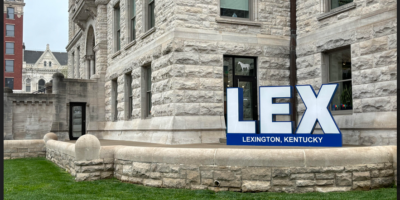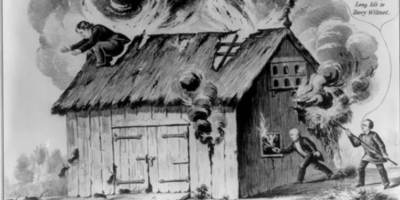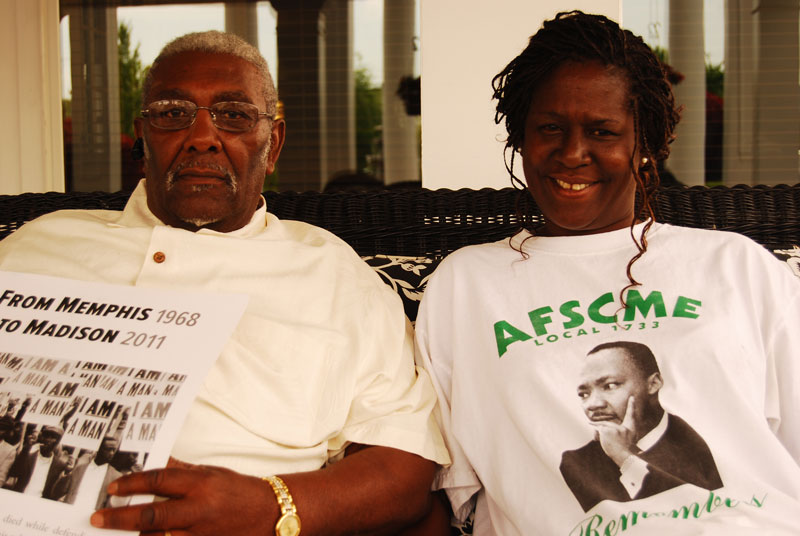By Richard Becker
In November 2011, shortly after beginning a new career as a labor organizer with the American Federation of State, County and Municipal Employees (AFSCME), I received a call from an employee of the Lexington-Fayette Urban County Government. He wanted me to meet with some employees in the Division of Waste Management. He said there would be about a half a dozen individuals who wanted to ask me some questions about organizing and what it would mean for them. So I packed up my things, brought a few union cards and one sign-in sheet and made for the meeting place.
When I arrived I realized I had come gravely unprepared. There weren’t just a handful of workers—there were close to one hundred of them packing our small meeting room. They kept me busy for the next two hours with a whirlwind of questions, comments, concerns, and calls to action. Workers poked and prodded each other to speak up, speak out, and get involved. They shouted out ideas and suggestions, and signed up to help organize. Leaving the meeting that day I felt flushed, exhilarated and, for the first time in months, like there was a real and tangible purpose to the work I was doing.
As it turns out, I had walked into a movement already set in motion. In the spring of 2011, there was a dust-up in Waste Management over comments made by a contractor hired by the city to train employees on a new computer system for the garbage trucks. The contractor commented at a city council committee that the workers he trained were “hostile” one-on-one, but in smaller groups “they’re puppy dogs.” He went on to describe the employees as “illiterate.” Ultimately, the city was compelled to apologize when a number of offended Waste Management employees packed the city council chambers to express their offense and concerns.
Nearly a year after the city’s apology, and a mere five months after my first under-prepared meeting with them, the workers of Lexington’s Waste Management Division made their voices heard: on April 4, 2012, the anniversary of the assassination of Dr. Martin Luther King, Jr., employees of the Lexington-Fayette Urban County Government’s Division of Waste Management filed petition cards with the city seeking a union election. Forty-four years earlier, in April of 1968, Dr. King traveled to Memphis to stand with striking sanitation workers who were attempting to form a union through the American Federation of State, County and Municipal Employees. While standing up for these mistreated and underpaid workers Dr. King was tragically gunned down.
Joining Lexington’s sanitation workers on this historic day was Mr. Baxter Leach, one of the Memphis sanitation workers who organized his fellow workers, agitated for a union, and marched in the streets with Dr. King in 1968. Although he felt the sting of pepper spray and the blast of fire hoses in the streets of Memphis, Leach also felt the warmth of worker solidarity and the relief of victory when the city finally relented, less than two weeks after King’s assassination, and recognized AFSCME Local 1733. Leach agreed to join Lexington’s sanitation workers in their struggle because since his retirement, he has dedicated himself to furthering the cause of the labor movement across the country. He recognized the historic nature of the occasion and the very real concerns of these workers.
What they want: representation and respect
Waste Management employees work primarily out of one site, on Byrd Thurman Drive off Old Frankfort Pike. As such, they are largely divorced from the decision-making that takes place at the government center on Main Street. Although they are one of the largest divisions of government, they are the employees most distant from where the conversations and decisions about how best to run the government are made. They want a voice in the government they serve.
This entails not only a physical bridging of the distance between them and city management—through face-to-face discussions of benefits and working conditions, for example—but also a symbolic one: they want input into the decision-making process, and a city administration more fully aware of the work they do every day.
On a fundamental level, then, they seek dignity, respect and fairness. Since the city negotiates with unions for other city worker classifications, they argue, it should recognize all city workers’ rights to union representation. As one worker expressed to me: “We’ve been told for years by the city that [human resources] would fix everything right up. Well, it’s just not working. Maybe with a union, we can make them listen up.”
The ball is in the city’s court. The sanitation workers are more optimistic about their prospects than they’ve been in years. They are counting on their government to do the right thing, to recognize their right to form a union.
For more information on how to support the recognition campaign of Lexington’s city employees, write to the author at rbecker@afscmecn62.org.





Leave a Reply